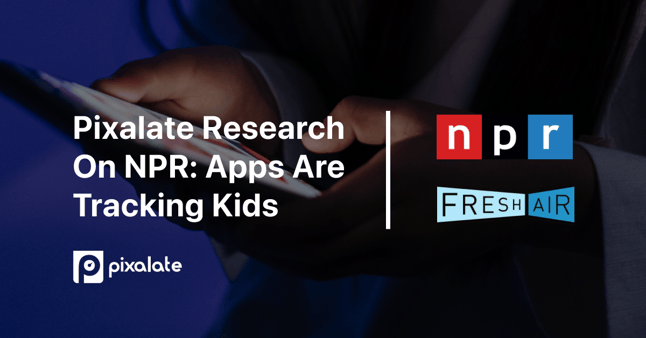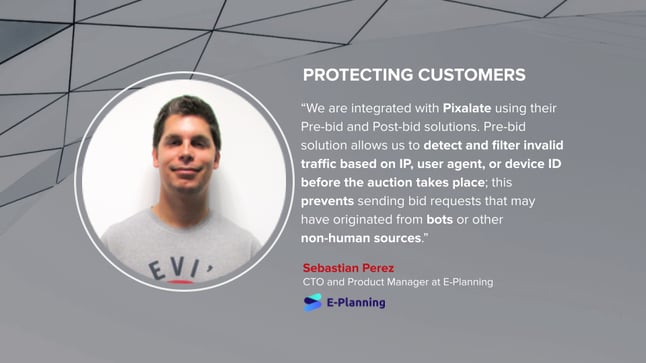
This week's review of ad fraud and privacy in the digital advertising space.
Jalal Nasir, CEO of Pixalate, delivered a keynote at ATS London 2022 on how today’s online advertising ecosystem poses risks to children’s privacy. Subjects covered in the speech included an introduction to the children’s privacy online, aspects necessary to start improving kids’ privacy online, key findings from the Mobile Apps: Google vs. Apple COPPA Scorecard (Q1 2022) report, Insights from the top 1000 child-directed apps from Apple and Google stores, and many more.
Watch the full presentation in the video and read the recap with the highlights from the speech.
 NPR spoke with Geoffrey Fowler, Washington Post technology columnist, about Pixalate’s research regarding the rampant endangerment of children’s privacy within mobile apps found on the Apple and Google app stores. The podcast covers the necessity of more comprehensive children’s privacy protection, where the Google and Apple app stores fall short, and more.
NPR spoke with Geoffrey Fowler, Washington Post technology columnist, about Pixalate’s research regarding the rampant endangerment of children’s privacy within mobile apps found on the Apple and Google app stores. The podcast covers the necessity of more comprehensive children’s privacy protection, where the Google and Apple app stores fall short, and more.
Check out the recap to find the most critical findings and quotes from the interview and listen to the full episode here.

Pixalate spoke with Sebastian Perez, CTO and Product Manager in E-Planning, about combating ad fraud and securing transparency in the programmatic ad supply chain. From the Q&A, you can learn how E-Planning protects its customers against invalid traffic, critical steps to ensure a transparent programmatic ad supply chain, the rising trends in the ad tech industry, and many more.
Read the full Q&A to discover insights about these topics.
![]()
In the light of Russia’s ongoing invasion of Ukraine, Pixalate is continually searching for mobile apps and website domains for which title and/or developer name matches entities that have been added to the most recent US-OFAC sanctions lists. In the June’s update, you can find insights about apps directly associated with one of the largest Russian gold mining companies.
Read the entire article to find more insights about OFAC restricted apps.

According to the State of US Data Privacy Law Compliance Survey Report, from Womble Bond Dickinson, most companies in the United States are prepared for the privacy legislation in California, Colorado, Virginia and Utah. However, "almost all would rather see a federal law that preempts individual state regulations," informs MediaPost.
*By entering your email address and clicking Subscribe, you are agreeing to our Terms of Use and Privacy Policy.
These Stories on Weekly Recaps
*By entering your email address and clicking Subscribe, you are agreeing to our Terms of Use and Privacy Policy.

Disclaimer: The content of this page reflects Pixalate’s opinions with respect to the factors that Pixalate believes can be useful to the digital media industry. Any proprietary data shared is grounded in Pixalate’s proprietary technology and analytics, which Pixalate is continuously evaluating and updating. Any references to outside sources should not be construed as endorsements. Pixalate’s opinions are just that - opinion, not facts or guarantees.
Per the MRC, “'Fraud' is not intended to represent fraud as defined in various laws, statutes and ordinances or as conventionally used in U.S. Court or other legal proceedings, but rather a custom definition strictly for advertising measurement purposes. Also per the MRC, “‘Invalid Traffic’ is defined generally as traffic that does not meet certain ad serving quality or completeness criteria, or otherwise does not represent legitimate ad traffic that should be included in measurement counts. Among the reasons why ad traffic may be deemed invalid is it is a result of non-human traffic (spiders, bots, etc.), or activity designed to produce fraudulent traffic.”

